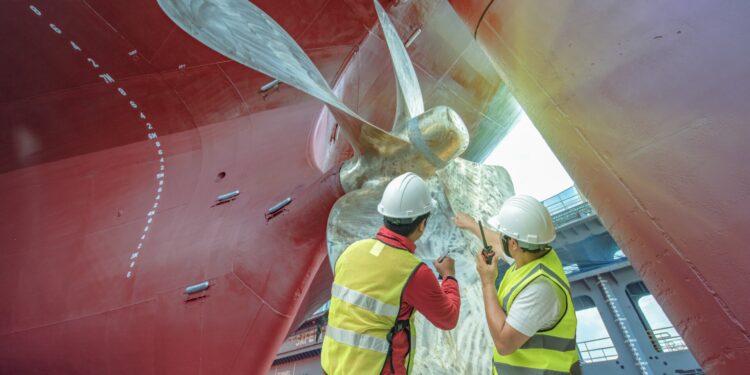The shipbuilding industry is starting to exhibit signs of fatigue, as brokers indicate a decline in both order volumes and new vessel prices after three years of strong demand and investment activity.
Clarksons Research reports a significant 57% year-on-year drop in demand for new ships, leading to downward pressure on prices.
Since the start of 2025, new vessel prices have decreased by 1.2%.
While this reduction is modest, it marks a shift from the historically high price levels seen recently.
Moreover, different sectors are experiencing varying trends.
Tankers are facing the most significant price declines, with a 5% drop since early 2025.
Bulk carriers have seen a reduction of 2.2%, while containership prices have fallen by 1.4%.
These changes reflect a substantial decrease in demand across certain sectors and the onset of a price de-escalation cycle from elevated starting points.
The monthly report from Danish Ship Finance emphasizes that the weakening demand is likely to persist in the short term.
In this environment, reduced interest from shipowners, combined with falling freight rates—similar to the beginning of the year—intensifies competition among shipyards for new orders. The scenario is particularly challenging for smaller shipyards that lack long-term contracts.
BRS analysis forecasts a further slowdown in freight transport markets, which may delay or even “freeze” investment decisions.
“We anticipate ongoing global uncertainties, with increased pressures on the shipbuilding industry leading to potential price declines for new vessels exceeding 10% by 2025, contingent on the type and size of the ship,” BRS commented.
Data from VesselsValue also indicates low activity in the commercial shipbuilding sector, with only 369 new orders for bulk carriers, tankers, containerships, and gas carriers registered from January to April 2025.
This marks a 37% decline from the same period in 2024, during which 590 orders were placed, and a 26% decrease compared to 2023, when 500 orders were recorded.
As for 2025, VesselsValue reports the following orders:
- 136 bulk carriers, down 18% from last year.
- 97 tankers, a 66% decline from 2024.
- 23 gas carriers, compared to 125 in 2024, representing an over 80% reduction.
The only increase is seen in containership orders, with 113 compared to 18 last year.

















